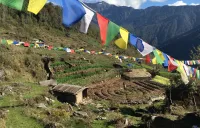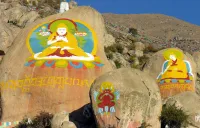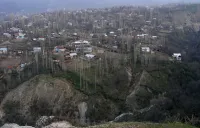A Gateway to the Untouched Central Asia
Ready made tours regularly updated and carefully designed with the Nomad’s Land spirit.
What makes us unique?
What makes us unique?
Our latest updates Before you go
Stay informed with our latest updates and essential tips to ensure your Silk Road adventure is both memorable and seamless.
News
Places to visit
Culture
Blog
Eco Projects

Rural development in Nepal
The Nepalko Sathi association leads its actions in favor of the Sherpas of Khembalung in the Arun valley (Province of Koshi). Nepalko Sathi
From Tumlingtar airport we reach by jeep the small town of Kahandbari where we are greeted by Kibutie and his family. From there, we climb to the small village of Gontala, in the heart of the actions of Nepalko Sathi (three days of walking), then we go up to Saissima, where Tendi Sherpa is rehabilitating the hamlet of his childhood. From Saissima it is possible to continue and make a loop towards Makalu and the impressive surrounding peaks (under tent).













